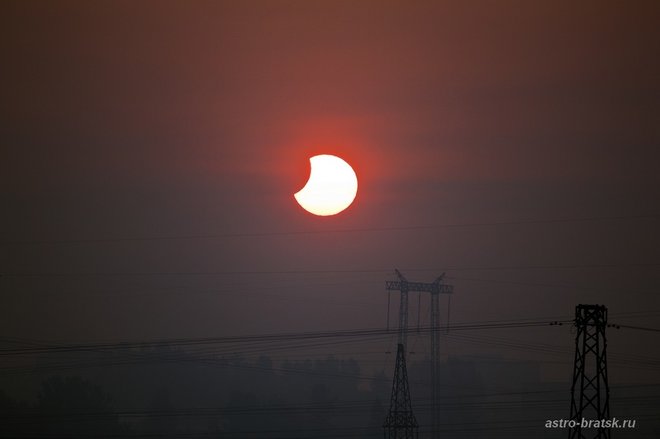Dateline Jerusalem — Many Israelis have asked me why people in the United States were so excited about the total solar eclipse this week.
Many of my American friends and relatives traveled out of their states to get a better view from areas in the direct path of the eclipse.
Others bought special glasses so the eclipse could be seen without being blinded. Allegedly this was the first total solar eclipse since 1257 CE to ever be seen only in the U.S.
However, 99 years ago a total solar eclipse crossed the U.S. from Washington state to Florida. Interestingly, this week’s eclipse coincided with Rosh Chodesh Elul, the first day of the Hebrew month of Elul, known as the “month of repentance.”
Just as the prophet Jonah, on the day of a solar eclipse in 763 BCE, gave the people of Nineveh 40 days to repent before judgment would strike, the total eclipse this week brought in the beginning of a 40-day period that ends with Yom Kippur, the Jewish Day of Atonement.
Believe it or not, there is a town in the U.S. called Nineveh that had 93 percent of the sun blotted out by the moon during the eclipse. Most Americans saw a partial eclipse where the moon covers a part of the sun.
But those in the direct path of the eclipse saw a total eclipse where the sky goes dark and the only visible part of the sun is the corona.
It is interesting to note that events in the books of Joshua and Amos also occurred during eclipses.
These Are Not New
There is a further relationship between eclipses and Judaism. Total solar eclipses are noted in the Talmud, the oral version or commentary on the Torah which comprises Jewish law and tradition.
The Talmud describes an eclipse as “striking of the sun.” It says, “When the sun is eclipsed, it is a bad sign for the whole world” as it is a divine form of punishment. Therefore, it was believed that a solar eclipse is a sign that judgment is coming upon a nation.
Because the Torah and Talmud focus on praising G-d, there are blessings for the miraculous wonders of nature such as lightning, thunder, a rainbow, earthquakes, comets.
Yet, there are no blessings recited over a solar eclipse because the Talmud considers a solar eclipse a bad omen.
The Gemara part of the Talmud equates lunar eclipses to negative times for the Jewish people and solar eclipses to bad times for the non-Jewish nations.
This, however, is controversial because some famous rabbis equate the “striking of the sun” in the Talmud to mean sunspots, not solar eclipses.
Just as a solar eclipse has been thought of as the harbinger of judgment for a nation, in a month from this week’s total solar eclipse, Jews around the world will appropriately observe Rosh Hashana, the Day of Judgment, the “head of the year.”
This is when G-d judges last year’s deeds and determines our fate for the next year. It is the Jewish New Year commemorating the creation of mankind, the birth of Adam and Eve. However, unlike the New Year’s Eve and Day of the Gregorian calendar, Rosh Hashana is not spent drinking champagne and going to all-night parties.
Here Are Differences
Instead, Jews spend all day reflecting, repenting, praying in synagogue that their new year will be a sweet and good one, that they and their family and friends will be inscribed in the Book of Life for a long life of health and happiness.
Therefore, this auspicious solar-eclipsed beginning of the month of Elul is the perfect time for me to begin to apologize and ask forgiveness from my family, friends, and even enemies, for any intentional, unintentional, and unknown transgressions and sins that I may have committed against my fellow man.
This is a time that our requests for forgiveness must be sincere and we show true regret for our actions, words, and deeds.
Just saying “I am sorry” are empty words if there is no real meaning behind them.
If our sincere apologies are not accepted, then we must continue to ask up to three times.
But if after three times we are still not forgiven, we are no longer held accountable for the transgression.
It then transfers to the person who refuses to accept our sincere apology and continues to hold a grudge against us.
Therefore, if I have said or done anything that has caused any of you distress or pain, or injured you in any way, whether it be by action or deed, or inaction, or in any way at all, please forgive me.
Although this request for forgiveness is not expressed in a personal manner, please believe it is truly sincere.
I am often unaware of my transgressions because many times they are unintentional. Therefore, to reach all who may have been hurt by me, I send out this apology en masse.
May G-d inscribe you and your loved ones in the Book of Life for a good year, for a long life and year of health, happiness, prosperity, tranquility, peace and safety.
May you all have a good, sweet, and favorable new year. Remember, a bad decree is removed with repentance, prayer and charity.
L’hitraot. Shachar

